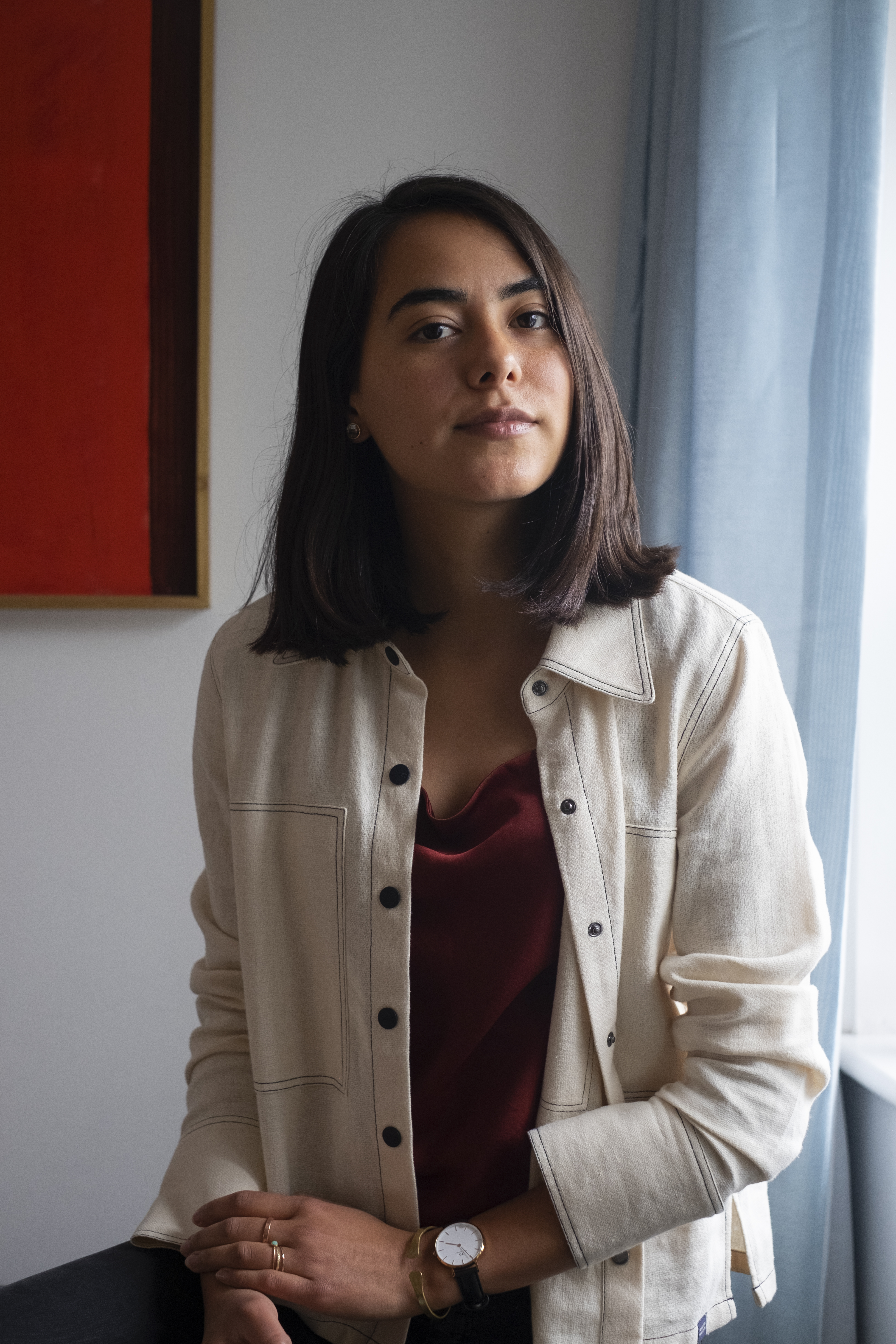
Our COVID-19 Case Studies explore the different ways the photographic community is working and staying connected through the pandemic. If you would like to submit a Case Study get in touch for more information.
My name is Natalia González Acosta, a Mexican photographer based in London. I am a recent BA Photography graduate from the Cambridge School of Art and I will soon start the Photography & Urban Cultures MA at Goldsmiths, University of London. My practice is rooted in social-documentary photography, where I explore the concepts of home and cultural identity by focusing on the relationship between people and their environments. I am interested in working collaboratively with the participants in my projects to better understand the ethics of representation.
How are you adapting your work during the pandemic?
The pandemic hit during my last semester of University, the most hectic period as an Art student as I was working on my Final Major Project and preparing for the Degree Show that was planned for summer. When lockdown started, I established routines to give my day a bit of structure and at the same time I was accepting the fact that I would not finish my degree as planned. Coming to terms with this was difficult because I had been looking forward to exhibitions, the graduation, and the celebrations with friends and family.
I therefore focused on finishing my Final Major Project and preparing it for online submission, which consisted on describing the way I would have exhibited and presented the work.
How did you find graduating during the pandemic?
I am not going to lie, it was a disheartening experience because it feels like I have not graduated. I have only received a digital transcript of my grades, but not my official certificate. So in reality, it simply feels like I have not graduated and like I have not had closure on that chapter of my life.
This is also because I did not have the chance to say goodbye to my classmates, lecturers and the university, which is strange as we have all moved on now.
How are you coping?
The uncertainty during the first couple of months was the most difficult aspect about lockdown. However, my immediate coping mechanism was photography as I began my ‘Escaping Quarantine’ series during the first week of lockdown in March. This self-imposed project was a way to go outside and photograph the different parks and green areas in Cambridgeshire. My main purpose was to escape my own quarantine and in doing so, I documented the way others were escaping theirs. Staying photographically active was of great importance as it was a way to understand, process and accept my conflicted feelings.
Has the new context inspired you to try anything innovative that you haven’t tried before? If so, what?
Once the ‘Escaping Quarantine’ series naturally came to an end after the lockdown measures eased, I soon started to experiment with night photography which I had not done before. It was a learning curve as I had not encountered ‘reciprocity failure’ before and I had to do a lot of testing. Nevertheless, I enjoyed the night walks and I felt excited to use a tripod and a cable release, which are essentials when photographing at night.
Are there any working methods that you envisage keeping once the lockdown is over?
Definitely! I had the luck to find Traia Photolab, one of the few labs open during lockdown, and we started what I consider to be a successful working relationship. I have been sending them my film ever since and I will continue to do so as I have now become a member. Maia and Tristan, founders of Traia, aim to highlight and support recent graduates by offering exposure and competitive prices. They are simply fantastic to work with!
What advice, resources, links or projects would you like to share with other photographers?
I have been listening to Ben Smith’s podcast Conversations with Photographers as Ben had the chance to talk to photographers via phone/zoom call, which he had not done before. It is interesting to hear how others are coping which is the reason I also watched the Magnum Quarantine conversations, available at the Magnum website. It was a way to learn more about photographers that are scattered all around the world and to see how the pandemic is affecting them and that area of the world. I also watched a lot of the conversations between Steve McLeod and Kate O’Neill that started through the Metro Imaging Instagram account and were later continued at The Visual Loop’s account once Metro reopened. These are great to watch as they encourage artist development.
See more of Natalia's work at https://www.nataliaga.com and keep an eye out for more of her work on our website soon.
